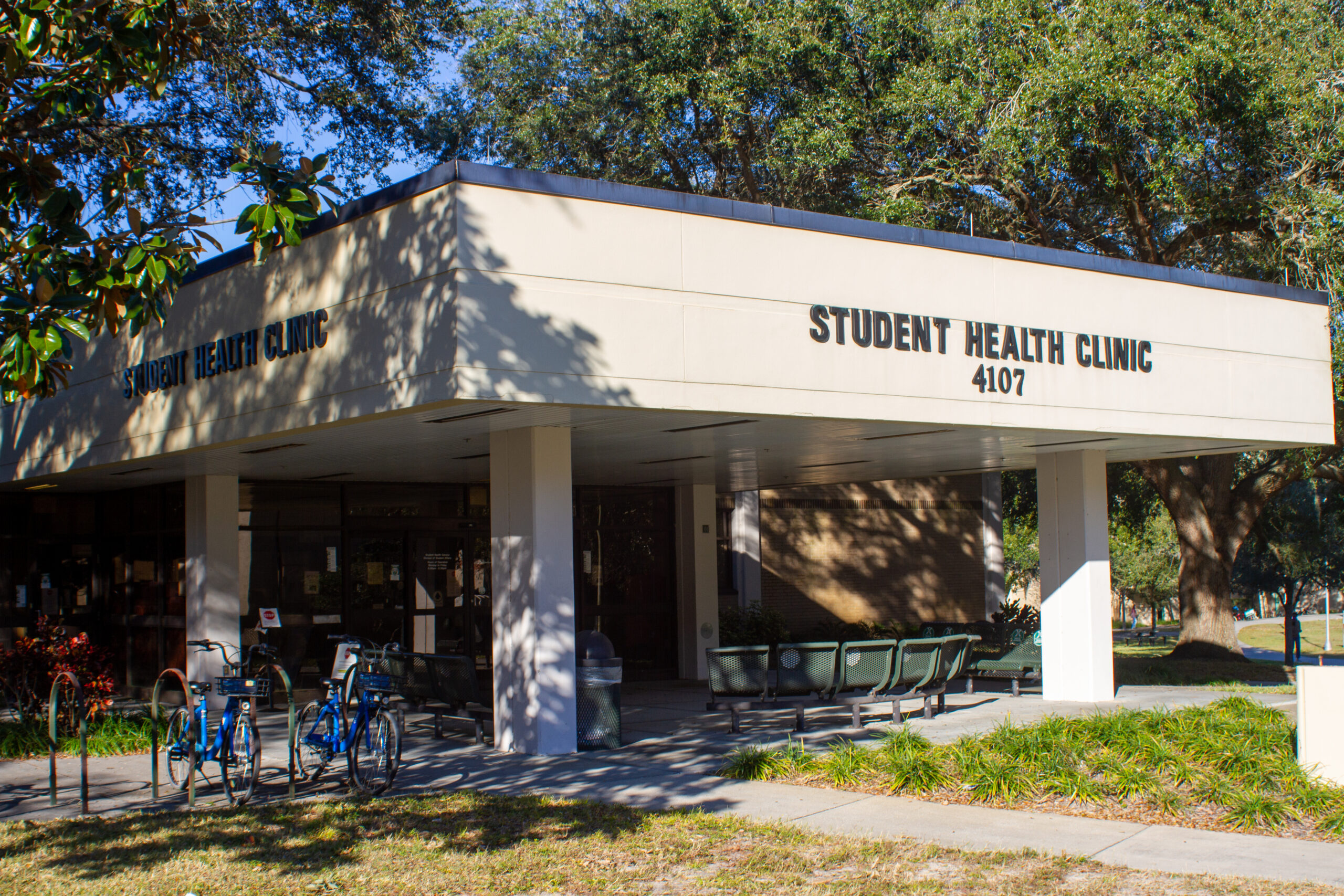Faculty offer mental health resources in light of Suicide Prevention Awareness Month

Movements to destigmatize mental illnesses in recent years have stood as a symbol of hope within the mental health profession, according to USF Counseling Center Director Scott Strader.
Following the official adaptation of National Suicide Prevention Awareness Month in 2008, September has presented an opportunity to honor the memories of those who have taken their lives. However, the negative stigma surrounding suicide is something Strader said has long stood as a barrier to students in crisis despite the progress.
“We see students kind of more willing to step forward, kind of engage in counseling or engage in some of these other resources, which we are really appreciative about,” he said.
“But we certainly have to continue to understand that there is a lot of stigma involved in seeking mental health services, generally, but also just in admitting that you’re experiencing suicidal ideations or symptoms of depression. That is a very real challenge to students really seeking out the help that they need.”
Being able to study trends in student mental health over the course of the pandemic provided an interesting perspective into how these barriers are formed, according to Strader. While mental illnesses, such as depression and anxiety, expectedly increased, he said he and his colleagues were surprised to find a significant decrease in reports of suicidal ideation and acts of suicide.
The decrease has been attributed to the increased availability of telehealth sessions and remote mental health services for those undergoing suicidal episodes, according to the Center for Collegiate Mental Health. Although rates of reported threat-to-self have consistently risen over the past eight years, the center added that self-health concerns decreased to 26.27% of areas reported by college students in the 2021-22 school year.
Maintaining the decreasing trend in student suicide rates is something Strader said has become a major priority of the Counseling Center when allocating its funding following the pandemic. In addition to expanded availability for in-person counseling sessions, the university has invested in a series of telehealth counseling services and online mental health platforms.
Having long stood as the primary resource for online peer-to-peer interaction, TogetherAll provides students a space to speak about their struggles anonymously. While students are not obligated to share after joining the platform, Strader said trained mental health professionals are readily available on the site if anyone would prefer to speak privately.
To accommodate increased student requests for mental health counseling during the pandemic, the Counseling Center also began using the virtual health care service TimelyCare. In addition to being assigned a licensed mental health provider, students are not required to provide proof of insurance to use the service.
Those seeking a more independently led form of treatment can check out TAO, according to Strader. Though the website doesn’t provide direct counseling sessions, students have the opportunity to explore different educational modules on mental illness as well as mindfulness libraries.
Director of the Center for Student Well-Being Jennifer Diprete said in addition to trends in mental illness resulting from the pandemic, she noticed students struggled with acclimating to college life when returning to campus. To assist students with their mental health through the transition, she said the Center for Student Well-Being has attempted to take a holistic, multidimensional approach to treatment.
“I don’t want to say this from a leadership perspective, but something that I’ve noticed is students coming back and wanting to get into the swing of things again, wanting to reacclimate to typical college and everyday life and struggling to be able to do so,” she said.
“The way I look at these struggles is that students are looking to reacclimate themselves and we’re here to help them reacclimate and remind them of the resources, strategies and skills that we can provide them in order to prevent some of the struggles and challenges they may be dealing with.”
Addressing the stigma surrounding suicide must begin with not only assessing public pressures, but how negative stereotypes contribute to one’s own understanding of suicide, according to Diprete. By promoting open and honest communication about mental health, she said she hopes conversation surrounding resources can become normalized.
Coordinating on-campus events for mental health awareness, especially for suicide awareness over the course of last week, has been an enlightening job, according to Center for Student Well-Being Health Promotion Specialist Kameron Talley. Since the beginning of September, she said she has tried to share awareness posts on the Center’s social media as well as hand out suicide prevention resource flyers to visitors.
Listed on the flier is a series of local crisis hotlines, including the USF Counseling Center, Crisis Center of Tampa, the Center for Student Outreach and Support and the USF Police Department. Outside of campus, Talley also included two federal crisis hotlines, or the Suicide and Crisis Hotline (988) and the Crisis Text Line (741741).
The importance of suicide awareness is something that should should be recognized far beyond the month of September, according to Diprete. While having an official Suicide Prevention Awareness Month represents a positive advancement in mental health advocacy, she said suicide prevention should be understood as a service instrumental year-round.
“We want people to know that the [we] focus on mental health and suicide prevention not just during the month of September, but every time we look at student wellness and well being. It’s something that can’t be broken up into segments,” she said.
“Supporting the mental health of a student is something we’re advocating for and addressing all year long because life doesn’t live in a vacuum one month of the year. It’s important to address mental health throughout the course of a student’s life cycle when they’re in college.”
If you or someone you know is contemplating suicide, call or text 988 to reach the Suicide and Crisis Lifeline.






